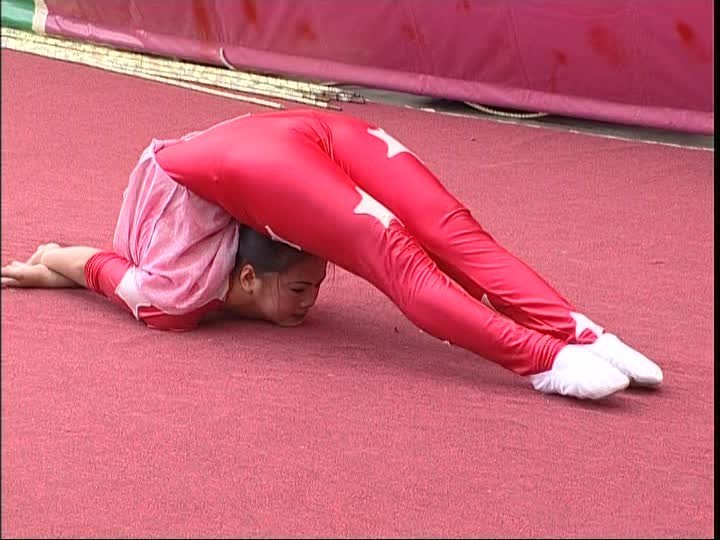Stretching and conflicting opinions
There was a recent social media posting that had the conclusion that stretching is „a waste of time“. Since I think the human mankind is a quiet heterogenous sample, we might say that stretching is absolutely fine for a lot of people as it is their way to enjoy moving or using their body.
I am surely no stretching advocate but the author also make some claims I would like to address and I think we need to have a broader look at.
„Stretching takes a lot of time and effort to increase flexibility. There are far more efficient and effective ways to gain flexibility“
Unfortunately the author doesn’t mention the other ways that are more efficient and effective. It is known that also strength training (Morton et al 2011, Nelson et al 2004), massage (Huang et al 2010) and heat (Bleakley et al 2013) are able to increase flexibility. Now lets follow the idea that stretching is a possible way to enjoy movement and we compare it to strength training as another way to be active. To my knowledge there is no paper that directly compares the amount of time, the effort and the efficacy of those 2 regimes in terms of flexibility. In terms of effort, I would say that strength training is in most cases more exhausting than stretching, while increases in flexibility doesn’t seem to differ that much (Morton et al 2011, Nelson et al 2004). So here I think that if your goal is to increase flexibility, stretching is a valid alternative.
„Stretching doesn’t reduce your risk of injury“
Interestingly, a paper by David Behm is cited here to support that statement. If we have a closer look at the whole paper the authors make the statement: „Overall, the current research indicates that preactivity stretching may be beneficial for injury prevention in sports with a sprint running component but not in endurance-based running activities (including military training) with a predominance of overuse injuries.“ (Behm et al 2016). I absolutely agree that stretching is getting overrated in terms of injury reduction. But the source itself shows a possible area where stretching could have those benefits.
„Stretching has no other significant health benefits (except maybe some small psychological effects for those that ‚truly‘ enjoy it)“
Thats a tough one. I think those psychological effects of being active and being able to move are really important benefits. But we also see changes in arterial stiffness by static stretching which is a possible way to reduce harmful cardio-vascular events (Shinno et al 2017, Logan et al 2018). It was also suggested to implement static stretching after a cardiac event as initial loading to the body.
Summary
Stretching is oftenly overrated in terms of injury reduction, reduction of muscle soreness and as a need in sports. But I do think that stretching still has its value and isn’t always a waste of time, especially if you enjoy it as your way to move your body.
We should also think about the biomechanics of stretching to get more ideas of its usage: Stretching is a very low-load elongation of the muscle-tendon unit while eccentrics are the same at high load. In terms of post-injury rehabilitation we might think of applying stretching as a possible low load technique on the muscle-tendon unit that can be done easily and uncomplicated at home (of course additional to other stuff). In untrained persons or between strength training sets, stretching can even lead to (additional) gains in hypertrophy (Nunes et al 2020), thats quite cool isn’t it? ;)
I hope my point of view helps a little bit to get a broader look at this topic and some ideas for clinical reasoning, when stretching could be a reasonable tool to applicate.
Thanks for reading,
Sebastian
Sources
Behm, D. G., Blazevich, A. J., Kay, A. D., & McHugh, M. (2016). Acute effects of muscle stretching on physical performance, range of motion, and injury incidence in healthy active individuals: a systematic review. Applied Physiology, Nutrition, and Metabolism, 41(1), 1–11. doi:10.1139/apnm-2015-0235
Bleakley, C. M., & Costello, J. T. (2013). Do Thermal Agents Affect Range of Movement and Mechanical Properties in Soft Tissues? A Systematic Review. Archives of Physical Medicine and Rehabilitation, 94(1), 149–163. doi:10.1016/j.apmr.2012.07.023
Huang, Stacey & Santo, Mario & Wadden, Katie & Cappa, Dario & Alkanani, Thamir & Behm, David. (2010). Short-Duration Massage at the Hamstrings Musculotendinous Junction Induces Greater Range of Motion. Journal of strength and conditioning research / National Strength & Conditioning Association. 24. 1917-24. 10.1519/JSC.0b013e3181e06e0c.
Logan, J. G., Kim, S.-S., Lee, M., Byon, H. D., & Yeo, S. (2018). Effects of Static Stretching Exercise on Lumbar Flexibility and Central Arterial Stiffness. The Journal of Cardiovascular Nursing, 1. doi:10.1097/jcn.0000000000000460
Morton, S. K., Whitehead, J. R., Brinkert, R. H., & Caine, D. J. (2011). Resistance Training vs. Static Stretching: Effects on Flexibility and Strength. Journal of Strength and Conditioning Research, 25(12), 3391–3398. doi:10.1519/jsc.0b013e31821624aa
Nelson, RT & Bandy, WD. (2004). Eccentric training and static stretching improve hamstring flexibility of high school males. Journal of athletic training. 39. 254-258.
Nunes, João Pedro & Schoenfeld, Brad & Nakamura, Masatoshi & Ribeiro, Alex & Cunha, Paolo & Cyrino, Edilson. (2020). Does stretch training induce muscle hypertrophy in humans? A review of the literature. Clinical Physiology and Functional Imaging. 40. 10.1111/cpf.12622.
Shinno, H., Kurose, S., Yamanaka, Y., Higurashi, K., Fukushima, Y., Tsutsumi, H., & Kimura, Y. (2017). Evaluation of a static stretching intervention on vascular endothelial function and arterial stiffness. European Journal of Sport Science, 17(5), 586–592. doi:10.1080/17461391.2017.1284267
#stretching #flexibility #injuryrisk #socialmedia #maitland #imta #sebsebsen #löscher





Comments